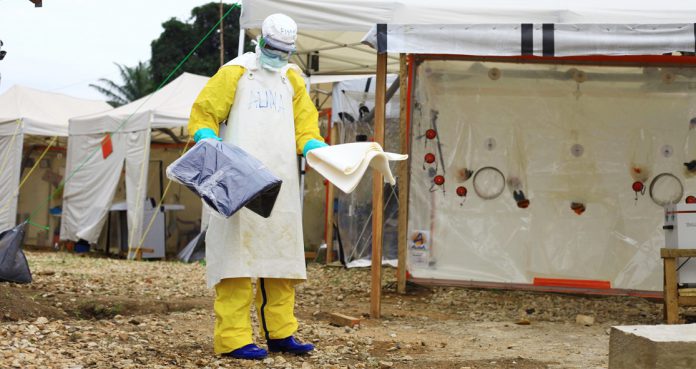The ongoing Ebola outbreak in the Democratic Republic of Congo has been getting worse as four Ebola response workers were killed and six others were injured in two attacks overnight against medical facilities.
On Thursday, the World Health Organization (WHO) said the killings are “unmistakably a directed attack at the [Ebola] response.”
One attack took place in Biakato Mines, which is an Ebola health facility used by WHO, UNICEF, government officials, and other agencies, where one vaccinator and two drivers were killed. Another attack took place in a small town of Mangina, where a police officer was killed. No WHO staff were killed but one was among the six who were injured.
WHO Executive Director for health emergencies Mike Ryan told journalists on call, “Though no WHO staff were killed, our Ministry of Health and partner colleagues are all members of the same family. We’ve been in the trenches together to stop this outbreak for a year and a half.”
“We grieve for them as we would for one our own,” he added. “We are heartbroken that they died as they worked to save others.”
Ryan said the DRC and the United Nations are opening official investigations, stating that as of yet, “there’s no confirmation of the actual perpetrators or the reason for the attack — we can only make assumptions about who it might have been, given the active groups in the area.”
Since the Ebola outbreak, was declared last year, the health workers and aid workers have faced health threats than the usual threats associated with the infection.
The WHO said the ongoing Ebola epidemic, which is now the world’s second-largest on record, has killed more than 2,200 people but the efforts to combat the disease have been affected by local militias.
Ryan said, “There have been 386 attacks, seven deaths and 77 injuries – and this response alone against health care workers and health care infrastructure. This is by far the deadliest attack so far.”
Earlier this week, the WHO and UNICEF pulled out most of its Ebola responders from Beni, which has been affected by more number of confirmed cases.
“The tragedy in this is that up until a week ago, essentially 98 percent of our cases were in two transmission chains and almost all cases were accounted for, and we were in a position where we were really starting to get on top of this virus,” said Ryan. “With the deterioration of security, with that loss of access, we’re now beginning again to see a small but worrying increase in cases and maybe losing some of the gains,” he added.






















